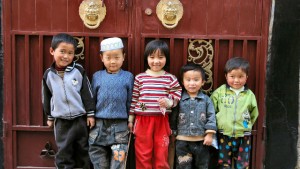Home » Commentary » Opinion » One-child change irrelevant to population growth
· Ideas@TheCentre
 China’s recent decision to dump its one-child policy will produce little impact on its future population growth. Indeed, the measure is largely irrelevant, as its fertility rate is currently way under the 2.1 children per woman replacement level threshold.
China’s recent decision to dump its one-child policy will produce little impact on its future population growth. Indeed, the measure is largely irrelevant, as its fertility rate is currently way under the 2.1 children per woman replacement level threshold.
The truth is that as China grows richer and more urbanised, the financial costs of bearing an extra child become more and more dependent on private decisions to expand the family.
It is quite telling that when Beijing relaxed its one-child policy in 2013, allowing married couples to have a second child if one of the parents was a single child themselves, there was very little interest from the public. In Shanghai, for instance, less than five percent of eligible couples have applied so far for the permission to expand the family.
After decades of blunt, top-down one-child family imposition, China was left with major social and fiscal liabilities. And most of the reduction of its fertility rate would have come even without such a draconian policy.
Evidence shows, no matter the cultural, religious or political background, the best predictors for falling fertility rates are urbanisation and higher income.
Supporters of the one-child policy point to the fertility rate in China being practically halved from 3.01 children per woman in 1980 to 1.55 in 2015. But a similar sharp downward trend was also observed in other parts of the world as per capita incomes grew, without the need for brutally enforced central planning.
In neighbouring Mongolia, for instance, fertility rates declined from 6.65 to 2.68 children per woman during the same period; in Hong Kong, spared from the mainland’s single child enforcement, fertility rates declined from 2.31 to 1.20 children per woman over the past 35 years.
The final verdict over China’s one-child policy is that economic incentives are far more effective (and less cruel) in determining demographic trends than a handful of central-planning bureaucrats. As the Chinese experiment shows, government policies attempting to second-guess market outcomes usually come at a heavy price – and are harder to undo.
This is an abridged version of an oped published this week by The Daily Telegraph
One-child change irrelevant to population growth